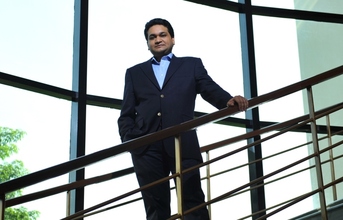
How has been the last year for PPAP Automotive? How do you look at this year?
The previous year looked very promising in the beginning. In the first half, the market conditions were favorable which resulted in an increase in demand of vehicles. However, the weakening of demand started from the second half of the previous year and is continuing till date. The tapering demand started with the floods in Kerala last year and post that, there have been innumerable factors which have affected the growth of the industry. During the end of the year, general elections were round the corner, the fuel prices were shooting up and interest costs were rising. The start of this year also has not been smooth at all. There is an acute liquidity crisis which is leading to postponement of purchases of vehicles. During the end of the year, we will see the implementation of BS VI norms. There is uncertainty regarding policy matters. The Government is focusing only on promotion of EV vehicles but there is no incentive for ICE Engine vehicles. Overall, the sentiments remain negative and until and unless the liquidity improves and the Government supports the industry by reducing GST, this year is also going to be tough one, for the entire industry.
BS VI regulations are to be implemented from next year. How are the Indian automotive and auto components industries are getting ready for it?
BS VI regulation will be implemented with effect from April 1, 2020. The industry had to leapfrog from BS IV to BS VI in a very short time. All the companies embraced this challenge and invested in upgrading their technologies and are ready with their strategies for implementing these norms across their product range. Implementation of these norms have brought about a tremendous disruption in the industry. The potential increase in cost of vehicles has forced many manufacturers to change their product portfolio including complete stoppage of Diesel engines. The shift from Diesel engines to Petrol engines will bring a lot of disruption in the Auto Component industry as well. Dedicated suppliers for diesel engines will face a tough time in finding customers for their products. However, we will also see some new component makers emerging in the emission product space. Till these norms are implemented, there is a lot of confusion in the consumer's mind regarding purchase of BS IV vehicles. This is also another factor for the reduction in demand of vehicles. For us, our products are used in any vehicle, be it a Petrol engine, Diesel engine or even an Electric Vehicle.
Globally, the trend of light weighting is seen in the industry for few years now. What impact does it have on auto component manufacturers? How has PPAP responded to this trend?
The prime focus on reduction of fuel consumption has led all automakers to focus on reducing the weight of their cars by using light weight components. Use of Engineering Plastic has been playing a major role in replacing traditionally used steel in many components.
PPAP has been consistently supporting this initiative by efforts towards reducing the cross section of its profiles as well as wall thickness of Injection Molding parts, thereby reducing the weight of the components manufactured by it.
Also, there is an increasing trend towards going green in the automotive industry. How do you look at it?
In today's world, everyone is aware about the concerns of the deteriorating Environment conditions and everyone is doing their bit to maintain the ecology and minimize their impact over the Environment. The vehicular emission is reducing with the implementation of new emission norms. As an industry, the OEM's as well as the component suppliers are doing their bit to reduce the impact of their respective operations on the Environment. The reduction of carbon footprint by reducing the energy consumption as well as use of alternate green power is one of the major focus of the entire industry. Apart from that, there are many initiatives like zero water discharge outside the plant and use of recyclable packaging. Many companies are focusing on reduction of single use plastics like water bottles from their operations. The industry also focuses on minimizing the use of conflict minerals. The focus for the industry is to ensure a sustainable environment around the activities done using a 3R approach (Reduce, Reuse and Recycle)
How do you look at the emergence of e-vehicles? How do you look at e-vehicles' future in India?
Electric vehicles (EVs) is the latest buzz word which is doing the rounds in the entire country. EV's comprise of a host of vehicles including CVs, Buses, PVs as well as Two and Three wheelers.
The government has shown its eagerness in early adoption of EV's and have launched promotional schemes like FAME II. They have reduced the GST to 5%. However, the infrastructure for adoption of EV's remain a challenge in India. We still have to wait and watch the evolution of technology in order for EV's adoption across all product segments. As of now, it seems fragmented. While adoption of EV's looks favorable in the public transportation space and point to point services, their adoption for private use may still be a few years away. Various companies are working tirelessly to develop technologies that will make EV's more affordable going forward.
END
